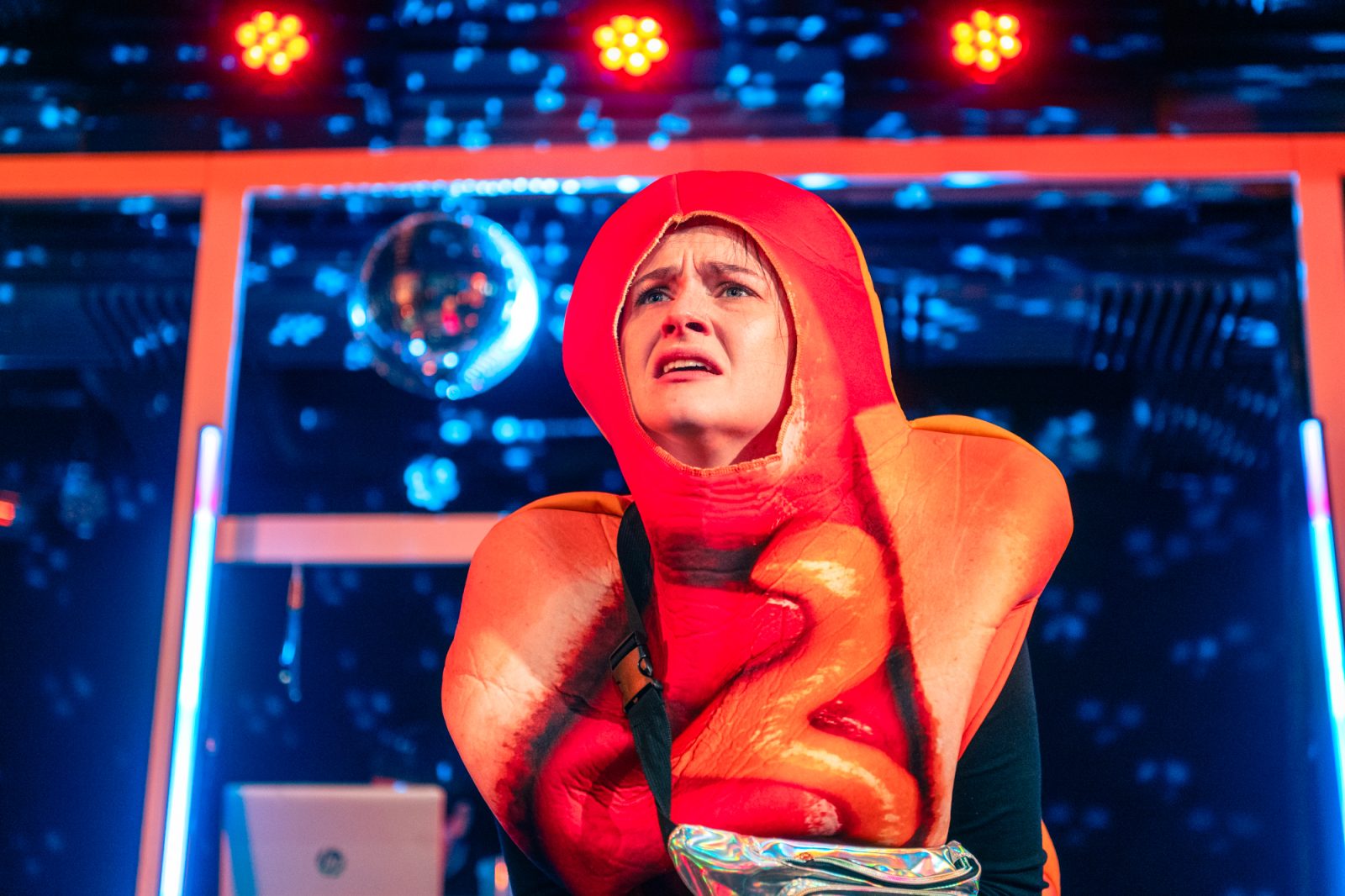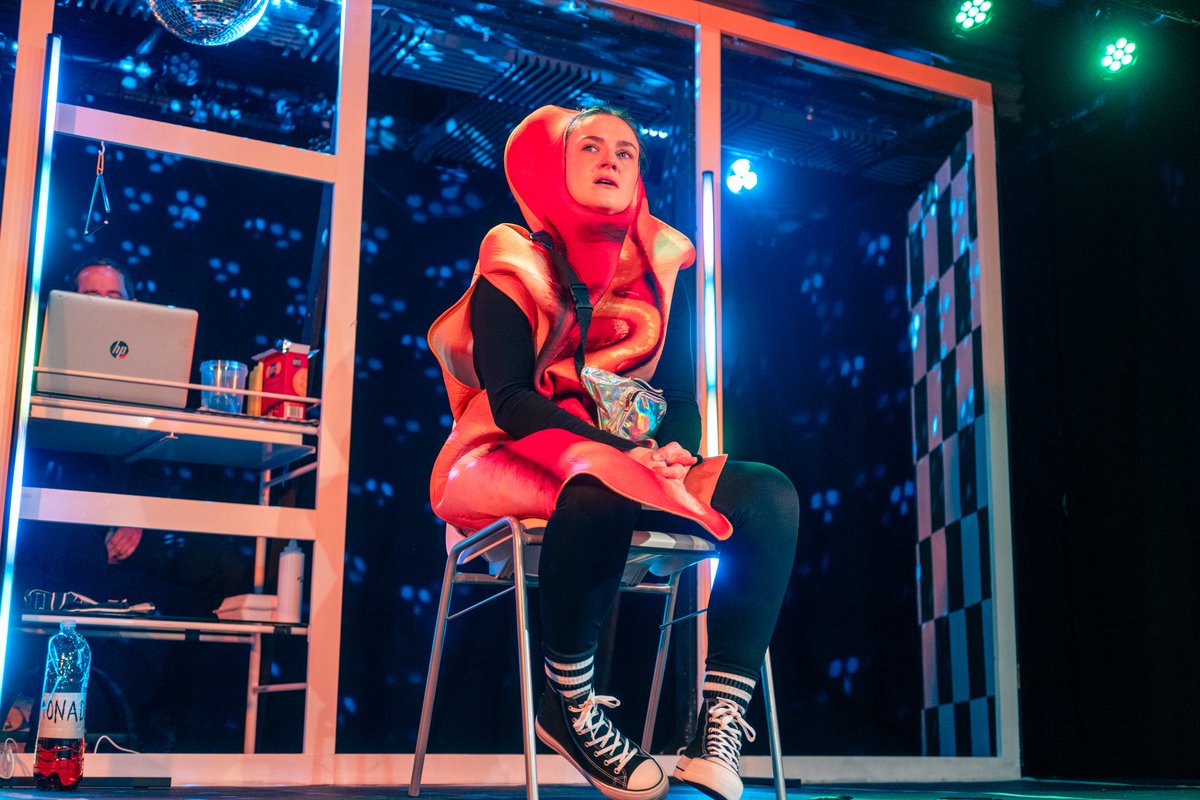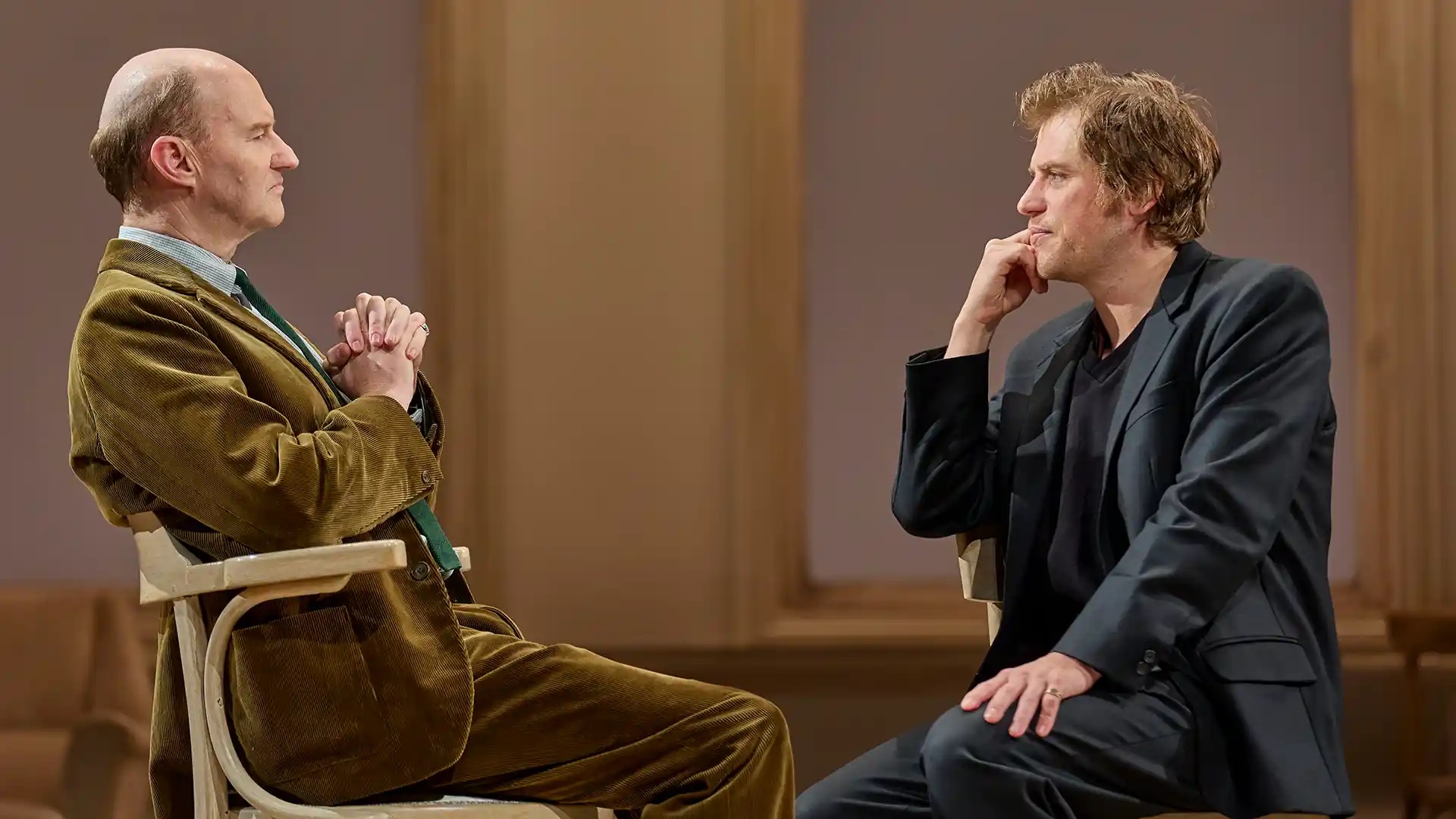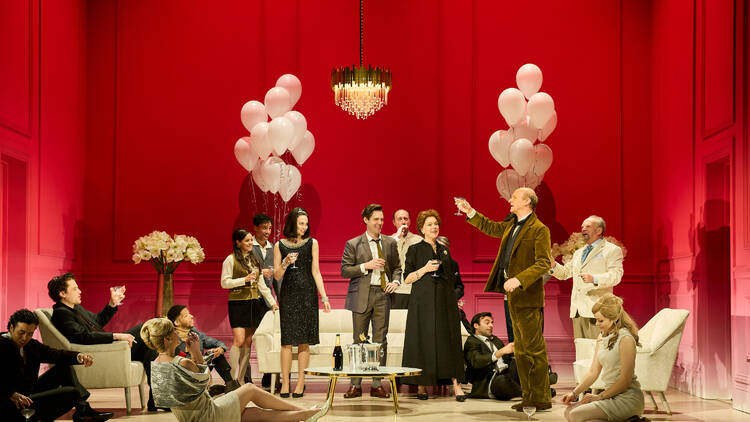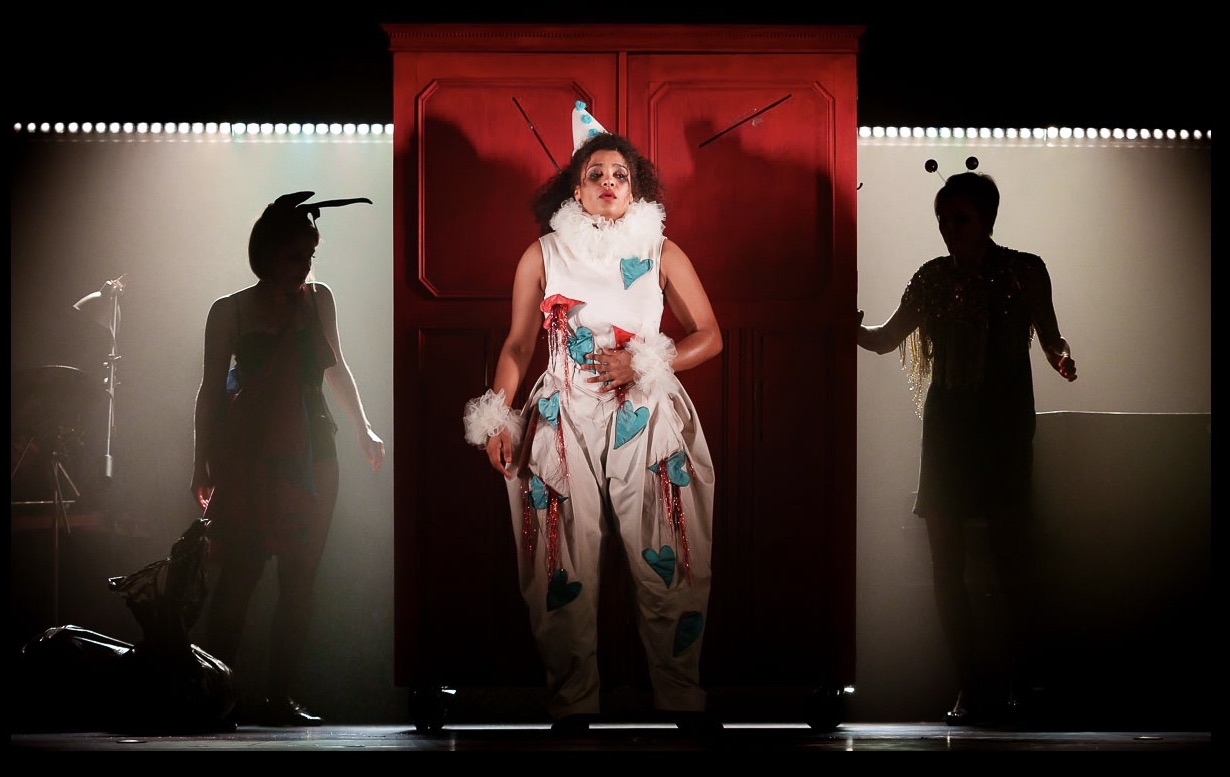
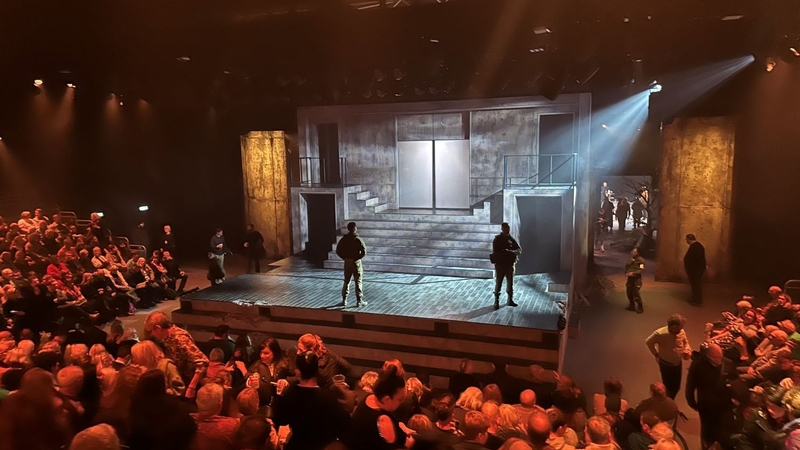

02/05/24
Cineworld, Edinburgh
Oh, the irony!
This touring production actually came to Edinburgh, the city where we live. But, for reasons far too tedious to go into, we failed to secure tickets for it – and now a screening of the live show at Cineworld offers us an opportunity to catch it after all.
I still haven’t given up on the hope that one day, somebody out there will put on a version of the Scottish Play in which the Macbeths are in their twenties. I’ve always felt that the hubristic actions of the Macbeths would make so much more sense if the duo were little more than reckless kids – and great actors though they are, Ralph Fiennes and Indira Varma hardly qualify in that department.
But a large helping of humble pie awaits me, because this sweaty, immersive interpretation of Shakespeare’s most ubiquitous play is one of the best versions I’ve seen. While it throws in some unexpected twists in the telling, they are never allowed to feel like gimmicks. Three feral-looking witches (played by Lucy Mangan, Danielle Fiamanya and Lola Shalam) appear in the background of scenes I wouldn’t usually expect to see them in, and lend a wonderfully sinister quality to the proceedings.
I won’t bang on about the story, which just about everybody in the world knows by heart (indeed, there are moments when I feel I could find work as a prompt for this play); suffice to say that both Fiennes and Varma acquit themselves admirably, Fiennes mining the seam of dark humour that underpins the mayhem and Varma absolutely nailing Lady M’s vaulting ambition. I’ve seldom seen the couple’s aspirations spelled out with such absolute clarity.
Ben Turner’s portrayal of MacDuff is riveting, particularly in the scene where he’s told by Ross (Ben Allan) of the murder of his wife and two children, the enormity of the revelation spelled out in Turner’s grief-wracked face. This is such an affecting moment that my own eyes flood with tears.
Finally, there’s the violent confrontation at the end, the warriors dressed in contemporary body armour. So often this play is let down by the sight of actors swiping half-heartedly at each other with rapiers, but the deadly looking machetes brandished in this confrontation are swung around with enough abandon to make me flinch in my seat. All in all, this is a faultless production and the mere glimpses I receive of its atmospheric setting make me wish I’d tried harder to hunt down tickets to the original performance.
If this comes to a cinema near you, I’d advise you to grab a seat at your earliest opportunity.
5 stars
Philip Caveney















